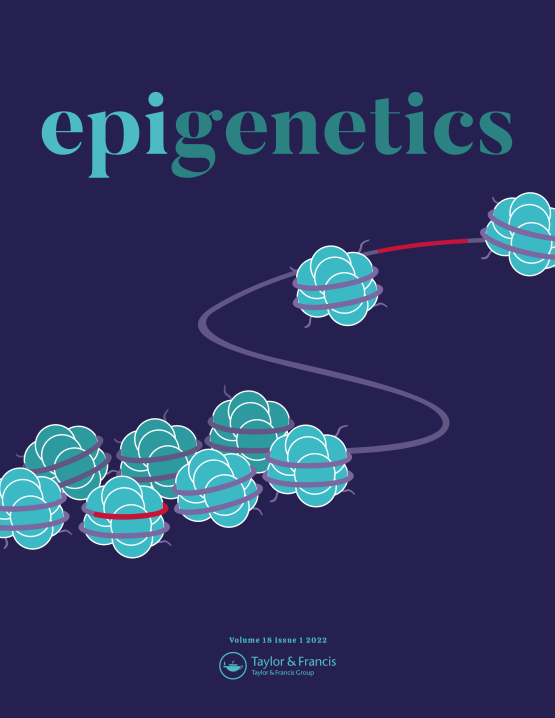Submit a Manuscript to the Journal
Epigenetics
For an Article Collection on
Adaptation and Changing Phenotypes through Transgenerational Epigenetics
Manuscript deadline
30 April 2024


Article collection guest advisor(s)
Lon J. Van Winkle PhD,
Rocky Vista University/Midwestern University
Philip M. Iannaccone MD, PhD,
Northwestern University
Rebecca J. Ryznar PhD,
Rocky Vista University
Adaptation and Changing Phenotypes through Transgenerational Epigenetics
The field of epigenetics is ripe with exciting new discoveries that have far reaching implications for adaptation and changing phenotypes, particularly in the area of transgenerational epigenetics, defined as non-DNA sequence-based alterations that can be transmitted from one generation to the next. Different from inter-generational or parental effects, such as in utero exposure to chemicals that impact germ line cells in the developing embryo, transgenerational epigenetic inheritance refers to DNA CpG dinucleotide methylations and biochemical changes in DNA associated histone proteins that persist, even in the absence of initial causes that led to the changes, such as environmental exposure. This type of phenomenon may have evolved to allow organisms to adapt to environmental conditions and transmit information critical for survival under extreme conditions to subsequent generations. Research shows that these non-DNA sequence-based epigenetic marks can be inherited across several generations in organisms ranging from plants to single celled eukaryotes, mice, rats, and even humans. The repertoire of epigenetic signals found to be transgenerational, include histone modifications as well as DNA methylations. Environmental factors known to induce transgenerational epigenetic changes include hypoxic conditions, temperature variability, nutrition, sunlight, toxins, radiation, osmotic stress in plants, and odorants. Evidence also exists for social and behavioral variables impacting transgenerational epigenetic inheritance patterns including maternal nurturing, trauma, activity levels or exercise, and predator-prey interactions. Epigenetic marks, notably DNA methylations, are responsible for gene imprinting, which silences alleles based on their maternal or paternal origin. Importantly, the imprints are reprogrammed during spermatogenesis and oogenesis. How the reprogramming is achieved and why other epigenic marks escape it, allowing the epigenomic landscape to be inherited is not fully understood. We encourage research articles, reviews, and brief reports documenting evidence of these phenomena in humans as well as other organisms, especially studies delineating potential molecular mechanisms regulating transmission and reprogramming of epigenetic information.
Guest Advisor Dr. Lon J. Van Winkle earned his Ph.D. in Biochemistry from Wayne State University in 1975, joined the faculty at several community colleges near Detroit in 1974, and became a full-time faculty member in Natural Sciences at the Dearborn campus of the University of Michigan in 1977. He then took a position at Midwestern University in 1979 where he retired as Professor and Chair of Biochemistry in August 2015. Dr Van Winkle is currently a Professor of Medical Humanities at Rocky Vista University and continues to publish regularly in the scientific literature on both early embryo development and medical science education. His work has been supported by grants from the Illinois Board of Higher Education, the Illinois Regenerative Medicine Institute, and the National Institutes of Health which helped him produce over 100 peer reviewed publications and five books concerning biomembrane transport, embryo development, stem cells, emerging talents in pharmacology, and interprofessional education. He is a member of Sigma Xi, the American Society for Biochemistry and Molecular Biology, the American Physiological Society, the Society for the Study of Reproduction, the International Association of Medical Science Educators, and the Gold Humanism Honor Society.
https://www.rvu.edu/faculty-staff/lon-van-winkle/
Guest Advisor Dr Iannaccone received his baccalaureate degrees from the State University of New York (S.U.N.Y.) College of Environmental Sciences and Forestry and Syracuse University. He received his M.D. from S.U.N.Y. Upstate Medical Center and his Ph.D. from Lincoln College, University of Oxford, England under the direction of Sir Henry Harris. Dr Iannaccone has served as the Chairman of the Board of Scientific Counselors of the National Institute of Environmental Health Sciences, as a member of the National Advisory Environmental Health Sciences Council and on numerous scientific advisory boards including for the European Union Framework Program. He served as the Director of the Developmental Biology Program of the Stanley Manne Children’s Research Institute, the Deputy Director and Senior Vice President of the Institute, the Director of the Northwestern University MD/Ph.D. Program, and NU’s Markey Program in Developmental Biology. He has published over 110 peer reviewed scientific papers and two books on gene regulation, cancer biology and carcinogenesis.
https://www.feinberg.northwestern.edu/faculty-profiles/az/profile.html?xid=11991
Guest Advisor Dr. Ryznar is currently an Associate Professor of Molecular Biology at Rocky Vista University. Her research interests include stress response and regulation, psychoneuroimmunology axis, transgenerational epigenetics, and trauma.
https://www.rvu.edu/faculty-staff/rebecca-ryznar/
Benefits of publishing open access within Taylor & Francis
Global marketing and publicity, ensuring your research reaches the people you want it to.
Article Collections bring together the latest research on hot topics from influential researchers across the globe.
Rigorous peer review for every open access article.
Rapid online publication allowing you to share your work quickly.
Looking to Publish your Research?
Find out how to publish your research open access with Taylor & Francis Group.
Choose open accessSubmission Instructions
All manuscripts submitted to this Article Collection will undergo desk assessment and peer-review as part of our standard editorial process. Guest Advisors for this collection will not be involved in peer-reviewing manuscripts unless they are an existing member of the Editorial Board. Please review the journal Aims and Scope and author submission instructions prior to submitting a manuscript.